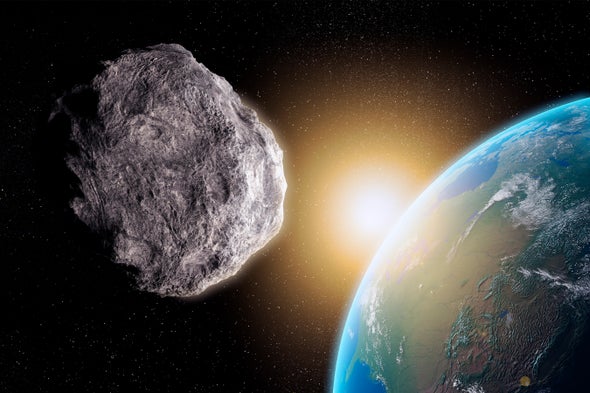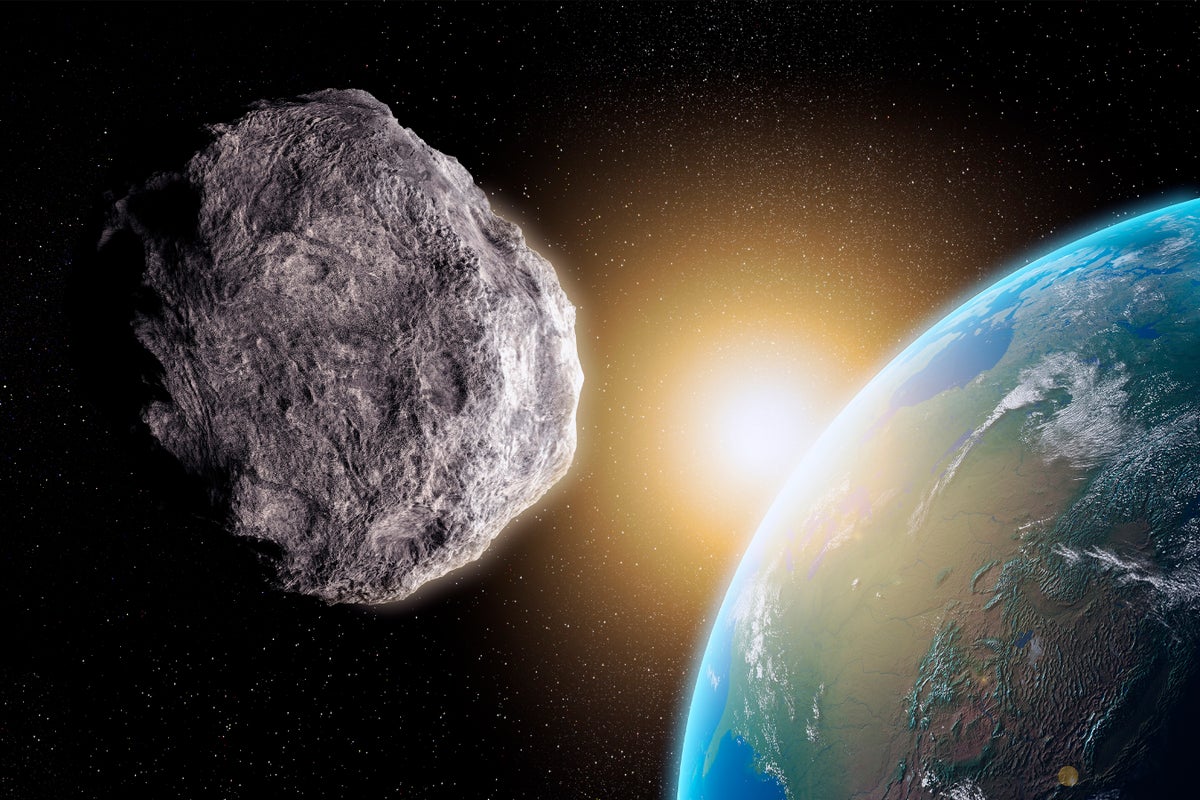Newfound Asteroid May Strike Earth in 2046, NASA Says
Preliminary estimates suggest that a 50-meter space rock called 2023 DW has a roughly one-in-600 chance of colliding with our planet in 23 years
- By Brandon Specktor, LiveScience on March 9, 2023

A newly discovered asteroid may make a perilously close approach to Earth about 20 years from now, with a roughly 1-in-600 chance that the space rock will collide directly with our planet, officials with NASA's Planetary Defense Coordination Office tweeted.
While that's a higher-than-average risk level for near-Earth asteroids, it's still a "very small chance" of impact, NASA wrote — and that risk level is expected to decline as clearer observations of the asteroid become available.
First detected on Feb. 27, the asteroid dubbed 2023 DW is estimated to measure about 165 feet (50 meters) in diameter, or roughly the length of an Olympic-size swimming pool. The asteroid is expected to make a very close approach to Earth on Feb. 14, 2046; as of March 8, the European Space Agency's Near-Earth Object Coordination Centre predicts a 1-in-625 chance of a direct impact, although those odds are being recalculated daily.
"Often when new objects are first discovered, it takes several weeks of data to reduce the uncertainties and adequately predict their orbits years into the future," NASA tweeted. "Orbit analysts will continue to monitor asteroid 2023 DW and update predictions as more data comes in."
A direct impact from such a rock wouldn't be cataclysmic like the roughly 7.5-mile-wide (12 kilometers) dinosaur-killing asteroid that crashed to Earth 66 million years ago. However, 2023 DW could still cause severe damage if it were to land close to a major city or heavily populated area. A meteor less than half the size of 2023 DW exploded over Chelyabinsk, Russia, in 2013, generating a shock wave that damaged thousands of buildings and injured roughly 1,500 people.
While an impact with 2023 DW is extremely unlikely, scientists are rapidly developing methods to protect Earth from potentially hazardous asteroids like this one. Last week, NASA scientists published four studies confirming that the agency's Double Asteroid Redirection Test (DART) mission had successfully altered the trajectory of a small asteroid after slamming a spacecraft directly into it. Follow-up missions are currently in the works to further hone the effectiveness of this planetary defense technique.

Newfound Asteroid May Strike Earth in 2046, NASA Says
Preliminary estimates suggest that a 50-meter space rock called 2023 DW has a roughly one-in-600 chance of colliding with our planet in 23 years


 will burn that shyt on some
will burn that shyt on some  and the remaining piece will touch ground like a drop of snow
and the remaining piece will touch ground like a drop of snow



